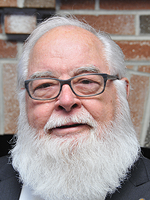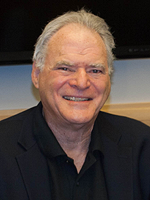The New England Board of Higher Education (NEBHE) will hold its 14th annual New England Higher Education Excellence Awards celebration and dinner in Boston on Friday, March 4, 2016.
Here is a bit about the 2016 recipients …

Thomas Putnam
The David and Rosamond Putnam Family of New Hampshire will receive NEBHE’s 2016 Governor Walter R. Peterson Award for Leadership, named for the late New Hampshire governor and college president.
David and Rosamond Putnam raised six children, traveled the world and enjoyed a life involved in the arts, culture and community. Their family business, Markem Corporation, merged with Dover Corporation in 2006, and has been a major contributor to New Hampshire’s economic strength and a model of civic and philanthropic leadership. Markem and Putnam family members have received several prestigious awards including the “#1 Best Large Company in New Hampshire” from Business New Hampshire magazine, the 2013 Governors Arts Awards and the Manchester Union Leader’s “Granite State Legacy Award.”
The Putnam family has provided both philanthropic and volunteer resources to enhance New Hampshire communities. For decades, their generosity has addressed initiatives and institutions involved with the arts, education, history, humanities and the environment. The Putnams are benefactors to the Apple Hill Center for Chamber Music, the Keene Symphony, Saint-Gaudens National Historic Site, Keene State College, New England College, the University of New Hampshire, the New Hampshire Charitable Foundation, the National Business Committee for the Arts, the Nature Conservancy, and Doctors Without Borders.
The Putnam family’s commitment to the arts and culture has affected many regions throughout New Hampshire. New England College recently received a $3 million gift from Thomas and Barbara Putnam, the Putnam family and the Putnam Foundation to build the Rosamond Page Putnam Center for the Performing Arts. As a new, innovative performing arts venue for the region, the center will serve as a cornerstone to the south district of the New England College campus, broaden the college’s arts and cultural offerings, and provide a venue to the residents of central New Hampshire.
Dana Mohler-Faria
, former president of Bridgewater State University (BSU), will be one of two recipients of NEBHE’s 2016 Eleanor M. McMahon Award for Lifetime Achievement, named for the Rhode Island Education commissioner.
Mohler-Faria is the first person of color to lead BSU and, at the time of his inauguration, the first Cape Verdean in the U.S. to be elected president of a four-year institution of higher education.
An integral part of the campus community for 24 years and lifelong resident of Southeastern Massachusetts, Mohler-Faria, like many of the students who attend BSU, was the first member of his family to attend college.
Four decades and four degrees later, he continues to cite the work ethic and moral fabric of his late father, a construction worker, and his late mother, a laborer in the cranberry bogs of Wareham and in the factories of New Bedford, as the standards he holds himself up to every day.
During his presidency from June 2002 to June 2015, BSU experienced tremendous growth and is now the 10th largest four-year institution of higher education (public or private) in Massachusetts. During the first decade of the 21st century at Bridgewater, under Mohler-Faria’s leadership, BSU has thrived:
- Total headcount enrollment rose by 27% and full-time equivalents (FTE) by 41%;
- The number of degrees conferred rose by 71%;
- The freshmen-sophomore retention stands in excess of 80%, and retention rates for students of color and low-income students, once considerably lower than those of all students, have surged ahead and are now on par with the student body as a whole;
- The university added 90 full-time faculty to its ranks, a 37% increase. No public institution in Massachusetts has added more;
- BSU has added 11 buildings, 35 acres and 1,000 wireless access points to its campus footprint, having invested more than $400 million in capital expansion and infrastructure improvements;
- BSU has quadrupled the size of its private endowment, now in excess of $35 million;
- International partnerships grew from four to 45 around the globe over the past decade; and
- The six-year graduation rate increased by 25% during Mohler-Faria’s presidency; for students of color, it increased by nearly 50%.
Mohler-Faria served 11 years as vice president for administration and finance at BSU (then called Bridgewater State College). He holds a doctorate in higher education administration from the University of Massachusetts at Amherst, master’s and bachelor’s degrees in history from Boston University, and an associate degree from Cape Cod Community College. He has also served as a faculty member at the Harvard University New Presidents Seminar for the past 10 years.
Mohler-Faria served concurrently from January 2007 to June 2008 as Massachusetts Gov. Deval Patrick’s special advisor for education. He was instrumental in developing and establishing the state’s Executive Office of Education, and served for three years as a member of the Board of Elementary and Secondary Education.
The other 2016 recipient of NEBHE’s 2016 Eleanor M. McMahon Award for Lifetime Achievement is Barbara Murphy, president emerita of Johnson State College (JSU).

Barbara Murphy
Murphy assumed the presidency of the public liberal arts and pre-professional college of more than 1,600 students in July 2001. The college’s statewide bachelor’s completion External Degree Program, which was significantly expanded during her tenure, has also been honored by NEBHE. Prior to joining JSC, Murphy was president of the Community College of Vermont, the state’s only community college.
Shortly after assuming the presidency at JSC, Murphy established the donor-supported “President’s Fund for Excellence in Teaching & Learning,” which supports projects including technology enhancements in classrooms and labs, student/faculty inquiry, scholarships for deserving students, distinguished guest scholars, faculty enrichment, student travel and seminars. To date, the fund has awarded more than $200,000.
During Murphy’s presidency, the college received a $1.8 million Title III grant focused on student success, launched an intensive program for first-year students, fostered the growth of the off-campus External Degree Program through a partnership with the Community College of Vermont, and completed several capital projects.
A published poet, Murphy is a former or current board member of Vermont CARES, an AIDS education and service program; the Vermont Alliance for Non-Profit Organizations; River Arts; the Lamoille Hunger Council; the Lamoille County Planning Commission; the Girl Scout Council of Vermont; and the Council for Adult & Experiential Learning.
The Miller Center promotes scholarship, education and public awareness about the events that brought about and continue to emanate from the Holocaust. Drawing upon the expertise of a distinguished faculty from across the university, the Miller Center offers an undergraduate minor field in Holocaust Studies and supports graduate training in the disciplinary departments.
The serious academic study of the Holocaust began at UVM, when the young scholar Raul Hilberg was recruited to join the Political Science Department at UVM in 1956. Hilberg would spend his entire academic career at UVM, eventually retiring in 1991. In 1961, he published his pathbreaking book, The Destruction of the European Jews, which remains a foundational, standard work about the subject. Upon Hilberg’s retirement, faculty at UVM founded the Center for Holocaust Studies to perpetuate UVM’s standing in the field. Instrumental in the founding of the center and the minor in Holocaust Studies were professors of German David Scrase and Wolfgang Mieder. Scrase served as founding director of the center for 15 years.
After Hilberg’s retirement, UVM’s basic course on the Holocaust was shifted to the Department of History, where it has been offered continuously, first by Doris Bergen and then by Jonathan Huener. In 2006, Leonard and Carolyn Miller, who had previously endowed the center’s bi-annual symposium, made a gift of $5 million to UVM to support Holocaust Studies. The Center for Holocaust Studies was renamed in their honor. While $3 million was earmarked for the renovation of the historic Billings Library, where the center will ultimately be housed, $2 million was used to endow distinguished professorships in Holocaust Studies—the Raul Hilberg Distinguished Professorship, currently held by Francis Nicosia, and the Leonard and Carolyn Miller Distinguished Professorship, currently held by Alan Steinweis.

Rev. David Cannon
Rev. David Cannon, former chair of the Connecticut Community Colleges, will receive NEBHE’s David C. Knapp Award for Trusteeship, named for the late University of Massachusetts president.
A retired Episcopal priest, he has been an advocate for social justice, equality and the mission of community colleges. He has been dedicated to pursuing opportunities for the people of his home community of Norwich, CT, as well as for the citizens of the entire southeastern region of the state
As chair of the governing board of the Connecticut Community College system, Cannon guided the system during a period that saw tumultuous change, including the successful consolidation of the state’s community and technical colleges under a single board of trustees, and the merger of the colleges themselves in 1992 to become comprehensive institutions.
His first appointment to the Community Colleges Board of Trustees by Gov. Ella Grasso in 1978 was followed by his appointment as chair of the board by Gov. William A. O’Neill in 1982. In 1993, he was appointed chair of the Community-Technical Colleges by Gov. Lowell P. Weicker. He was reappointed as a trustee in 1999 by Gov. John G. Rowland, and in 2005 by Gov. M. Jodi Rell. He continues his advocacy for the open-door mission of community colleges even now, well into his retirement, through the Connecticut Community College Round Table.
During his tenure on the board, the Community Colleges of Connecticut grew to become the largest constituent unit of Connecticut’s public higher education enterprise. His leadership and encouragement helped to launch and sustain a wide variety of initiatives that enabled the colleges to serve a growing and increasingly diverse student population including the Minority Fellowship Program, which attracts minority faculty and staff to the system colleges to enrich the academic environment and serve as role models and mentors for students.
He led efforts to build support for and implement a wide range of specialized programs that serve the deaf, learning-disabled and disadvantaged students of Connecticut. During his tenure as chair, the system expanded the number of academic program offerings overall, and greatly enhanced the physical and technology environments of the colleges to provide state-of-the-art facilities and technology for campuses throughout the state.
Cannon championed the system’s effort to provide childcare services as a key to access and success for students. He also helped develop the system’s Business and Industry Services Network, a workforce training initiative combining credit- and non-credit contract education services to meet the needs of the state’s businesses for a well-educated and skilled workforce.
Three New England companies will be recognized with NEBHE’s 2016 Business Contribution to Higher Education awards.
ALEX AND ANI is a fast-rising accessories company that creates eco-conscious jewelry and other items such as scarves and handbags. The Cranston, R.I.-based company, which is a five-time INC 5000 Honoree, is proving that manufacturing can make a comeback in New England.
ALEX AND ANI has invested millions of dollars in various higher education institutions, including a $1 million donation for the ALEX AND ANI Hall at Rhode Island College.
The company strives to hire locally, beginning with their interns. Its staff has made available both their experience and training that higher education institutions so greatly need. The company encourages its employees to follow the philanthropic example of ALEX AND ANI by giving back to their alma maters and charitable organizations. To date, ALEX AND ANI has donated over $28 million to charitable organizations all over the world.
“The company truly understands the mutually beneficial value of the flow of assistance back and forth between higher education and the company,” said Rhode Island College President Nancy Carriuolo.
Founded in 1949, Cianbro is one of the largest, most diverse 100% employee-owned construction services company. Currently operating in 41 states and employing more than 4,000 team members, Cianbro manages and self-performs civil, structural, mechanical, electrical, instrumentation, fabrication and coating.
Cianbro encourages team members interested in continuing their education to start the process by taking advantage of the high-quality craft, business, technical and management training provided by the Cianbro Institute.
Maine higher education institutions that have partnered with Cianbro include Eastern Maine Community College, Husson University, Kennebec Valley Community College, St. Joseph’s College and the University of Maine Augusta. Through these partnerships, Cianbro employees can pursue degree programs through seamless pathways and receive customized training opportunities.
Whitcraft Group is a contract manufacturer of precision sheet-metal fabrications and machined parts for the jet engine industry. The Whitcraft Group employs approximately 630 people and includes Connecticut Tool and Manufacturing, LLC in Plainville, CT, Berkshire Manufactured Products Inc. in Newburyport, MA and Whitcraft, its largest facility, located in the northeast part of Connecticut in Eastford.
Whitcraft partners with advanced manufacturing programs at Quinebaug Valley Community College (QVCC), Middlesex Community College and Asnuntuck Community College. The company also partners with Central Connecticut State University and the University of Connecticut in related programs.
The jet engine market is dominated by large OEMs who source parts from qualified, low-cost companies around the globe. This highly competitive marketplace increasingly demands on-time delivery, quality, cost, environmental and safety performance. Further, parts for this market are complex, made of exotic alloys to tight tolerances, produced in low quantities in support of rapidly changing schedules.
In response to these challenges, Whitcraft has adopted a core philosophy of relentless continuous improvement.
“Improvement typically begins with our operational processes and ends with the need to further develop the skills, knowledge and abilities of the people who execute those processes,” said Sandy Karosi, Whitcraft LLC ‘s human resources manager. “Our development programs combine internal and external instruction through partnering arrangements with regional schools. These partnerships take the form of interns and coops for students, on site instruction by professional teachers, and training programs sponsored by the schools that are aligned with our business goals for professional development. These development programs are an essential element of our strategic plan for growth in the years to come.”
In the same period, Whitcraft has provided its 330 Eastford employees with training opportunities on and off site and an employee Wellness Program focused on improved health and fitness and collaboration with QVCC by paying for 30 employees to participate in the QVCC Foundation’s Tackle the Trail race.
Whitcraft’s Eastford headquarters is located in Windham County, the poorest county in the state of Connecticut. But that fiscal reality has not impacted Whitcraft’s support for education opportunities and services for the residents of the county, including $100,000 pledged to the capital campaign to support the Advanced Manufacturing Technology Center and $15,000 in scholarship funds for residents of northeastern Connecticut to attend QVCC.
State Merit Awards

Jeffrey Fisher
Jeffrey Fisher, director of the Center for Health, Intervention and Prevention (CHIP) at the University of Connecticut, will receive the Connecticut State Merit Award.
Fisher is founding director of CHIP, a multidisciplinary center for health behavior change research, which has received more than $120 million in external funding for research on health behavior since its founding in 2002.
CHIP began in the late 1980s as the AIDS Risk Reduction Project in response to the rise of HIV as a major threat to life and health. Over time, CHIP has become a multidisciplinary center for the study of health promotion and health behavior change across a number of domains.
Fisher has an extensive background in health behavior change research, intervention design, implementation and evaluation, and has published extensively in these fields.
He has received about $25 million in external funding as a Principal Investigator for this research. Fisher is the co-author of the Information-Motivation-Behavioral Skills model of health behavior change, which has been widely adopted internationally in the context of conceptual and intervention work on health behavior change. He has designed, implemented, and evaluated effective health behavior change interventions in multiple populations, and in multiple health domains, with an emphasis on HIV prevention interventions in populations at risk for HIV.
In recent years, CHIP researchers have launched major initiatives in HIV prevention, medical adherence, autism, diabetes management, cancer prevention, obesity, pharmacology, substance abuse and treatment, health information technology, health communication, dissemination and implementation science, health disparities, exercise science, international health, and complementary and alternative medicine.
The Personalized Learning Program at University of Maine at Presque Isle (UMPI) will receive NEBHE’s Maine State Merit Award.
The program offers a transition to a more personalized approach to delivering instruction and assessing student learning. This model aligns with changes currently underway for 2018 in K-12 education, which requires students to demonstrate what they have learned and how they have mastered the Maine Learning Results in order to graduate from high school.
UMPI President Linda Schott and Provost Ray Rice, with financial support from the Davis Educational Foundation, are leading faculty in curricular reform grounded in proficiency-based education principles. This model is not course-based, but rather outcomes-oriented. Students study selected areas of interdisciplinary content and then demonstrate what they have learned via active evaluation methods such as delivering an oral presentation, assembling a written paper or completing a hands-on project.
Competency-based approaches are not time-dependent, thus allowing students to progress at their own pace, building upon prior knowledge and abilities. The model is flexible and personalized, permitting students who already have skills and capabilities to demonstrate their mastery and accelerate toward degree attainment. This model requires active student engagement and participation.
UMPI is the first institution in the University of Maine system to embark upon this approach. This work requires significant academic leadership as this approach to education is dramatically different from the status quo, requiring teachers to unbundle traditional courses/semester hours and provide personalized instruction and assessment of learning. The work acknowledges students as individual and unique learners, requiring tailored institutional response to optimally support competency development and degree success. This student-oriented philosophy recognizes prior learning, thus may increase access and affordability of higher education by focusing on performance rather than on time to degree.
Ahmed Abdelal, provost emeritus of the University of Massachusetts Lowell, will receive NEBHE’s 2016 Massachusetts State Merit Award.
For more than 30 years as a senior academic leader, Abdelal has helped shape and transform three separate institutions during crucial stages of their evolution into prominent research institutions.
Abdelal started as provost at UMass Lowell in 2008. During his tenure, UMass Lowell improved rapidly in student success, research productivity and reputation, rising at the third-fastest rate in the nation over the past five years on U.S. News and World Reports rankings of National Universities.
Between 2002 and 2008, he was provost and senior vice president for academic affairs at Northeastern University and was one of the principal architects of Northeastern’s rapid rise to the top 50 of U.S. News and World Reports rankings of National Universities. As dean of arts and sciences at Georgia State University from 1992 to 2002, Abdelal participated in that institution’s transition to a public research university in 1995 and its subsequent rise in prominence.
Abdelal has been hailed for his lasting impact on each institution and the many faculty and senior administrators and countless students he has mentored.
Dana Hamel has long expressed his belief that the University of New Hampshire is the Granite State’s most valuable asset.
In 2008, Hamel and his family established the Hamel Scholarships and Scholars program to attract top N.H. high school seniors to UNH, and to recognize outstanding juniors for exceptional leadership and academic accomplishments.
The Hamel Scholars gift follows two earlier Hamel family gifts to benefit students at UNH, the Hamel Student Recreation Center and the Hamel Center for Undergraduate Research.
Hamel received both his bachelor’s degree and MBA from Harvard University. After serving as an officer in the U.S. Quartermaster Corps, he co-founded Penn Corporation in 1964 and was chair of the consumer products company until it was sold in 1987.
An active investor, he serves on the investment and finance committees of the UNH Foundation and the New Hampshire Historical Society.

M. Teresa Paiva Weed
Sen. M. Teresa Paiva Weed will receive NEBHE’s Rhode Island State Merit Award.
A Democrat who represents Jamestown and Newport, Paiva Weed, was first elected to the Rhode Island Senate in 1992. In January 2009, she was first elected by her colleagues to serve as president of the Senate, the first woman in Rhode Island’s history to serve in this capacity. She was re-elected president in 2011, 2013 and 2015.
Before becoming Senate president, Paiva Weed served as Rhode Island’s first female Senate Majority Leader, a position she held for five years. She had previously served as vice chair of the Senate Finance Committee from 2002 through January 2004. From 2000 to 2002, she served as deputy chair of the Finance Subcommittee on Public Safety and the Environment. From 1997 through 2000, she served as the Senate’s chair of the Judiciary Committee.
Prior to her election to the Senate, Paiva Weed was chair of the Newport Affordable Housing Commission.
In her second Senate term, Paiva Weed led the legislative effort to reform the Rhode Island welfare system. As chair of the Judiciary Committee, she was instrumental in passage of legislation that changed the manner in which judges are selected to a merit-based process. As vice chair of the Finance Committee, she won passage of landmark bills, such as state pension reform, the establishment of a property tax cap, the Family Independence Act and restructuring the Victim’s Compensation Fund.
In 2014, she led the legislative effort to create the “Rhode to Work” action plan, which included initiatives to ensure that Rhode Island students would enter the workforce with skills that would prove successful and help create a positive climate for Rhode Island’s economic future. She also co-chaired the Rhode Island State Senate’s annual Economic Summit with President Nancy Carriuolo of Rhode Island College, focused on connecting higher education and workforce development.
In 2015, she continued her focus on education and higher education by establishing a School Building Authority, funding for full-day kindergarten to lay the foundation for long-term educational success. She worked with public higher education institutions on a funding formula and increased funding in the 2016 state budget by $7.5 million.
The Atmospheric Sciences Program at Lyndon State College will receive NEBHE’s Vermont State Merit Award.
The Atmospheric Sciences/Meteorology program has a 40-year history of producing quality graduates, who go on to careers as broadcast meteorologists, operational forecasters in the National Weather Service and for private industry, and other related sciences. A unique aspect of the program is its diverse curriculum, including an increased focus on climate change.
Experiential learning is one of the keys to the program’s success. Broadcast concentration students work with Lyndon’s on-campus TV studio for live nightly broadcasts in conjunction with a national award-winning Electronic Journalism Arts department. Private industry concentration students may forecast winter weather for the Vermont Agency of Transportation or conduct applied research on weather’s impacts on the electric grid. Graduate school concentration students may conduct research on how tornadoes form or how Vermont’s cloud cover affects solar energy under climate change.
Graduates have gone on to impressive military careers such as conducting research and forecasting for take-offs and landings of the space shuttle and briefing generals at NATO headquarters in Germany. Other graduates are in high-profile positions at the National Weather Service or work as broadcast meteorologists in major local and national media markets. Lyndon’s award-winning student chapter of the American Meteorological Society/National Weather Association hosts the annual Northeastern Storm Conference, the largest and longest running student-organized event in the nation.
For the list of previous Excellence Award winners, click here.
[ssba]
